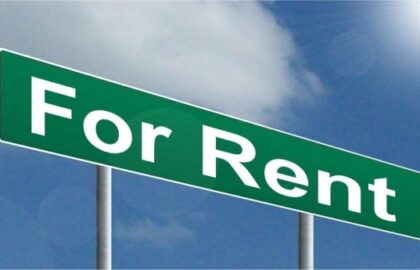
If you’re a first-time landlord who owns a rent-ready property, you might be wondering whether you can manage it yourself. If so, what will you be required to do? And why do other landlords hire property managers?
There are a few considerations to keep in mind before deciding whether to hire a property manager. Remembering those considerations while making your decision will ensure the best property management.
Can a Landlord Be a Property Manager?
Yes, a landlord can also act as a property manager for their own rental properties. In fact, it’s quite common for landlords, especially those who own a small number of properties, to take on the role of property manager themselves.
However, it’s essential to understand the responsibilities and legal requirements associated with both roles.
What Are the Requirements of Being a Property Manager?
If a landlord wants to act as the property manager, here’s what they need to keep in mind:
1. Understanding the Responsibilities
As a landlord and property manager, you’ll be responsible for tasks such as advertising and showing the property, screening tenants, collecting rent, handling maintenance and repairs, and addressing tenant concerns.
You’ll need to effectively balance these responsibilities.
2. Legal Requirements
Be aware of the laws and regulations governing landlord-tenant relationships in your area.
These laws vary from place to place and may dictate specific responsibilities and requirements for landlords and property managers.
3. Fair Housing Laws
When acting as both a landlord and property manager, it’s crucial to comply with fair housing laws, which prohibit discrimination in housing.
You have to treat all applicants and tenants fairly and equally, without discrimination based on factors such as race, colour, religion, sex, national origin, disability, or familial status.
4. Record Keeping
Maintain accurate records of all financial transactions, lease agreements, repairs, and communication with tenants.
Good record-keeping is essential for legal compliance and financial management.
5. Conflict Resolution
Be prepared to handle conflicts and disputes that may arise with tenants.
Having a clear process for addressing tenant complaints and resolving disputes is crucial.
6. Time Commitment
Managing rental properties, especially multiple properties, can be time-consuming.
Consider whether you have the time and availability to handle all aspects of property management effectively.
What Are the Advantages of Not Hiring a Property Manager?
Here’s what landlords can gain by being both landlords and property managers:
1. Cost Savings
One of the most significant advantages is cost savings. When you manage your properties yourself, you don’t have to pay property management fees, which typically range from 4% to 12% of the monthly rent. This can increase your overall rental income.
2. Control
Self-managing allows you to have full control over every aspect of your rental properties.
You can make decisions regarding tenant selection, rent rates, maintenance, and property improvements without relying on a third party.
3. Direct Communication
You have direct communication with your tenants, which can foster better relationships and a deeper understanding of their needs and concerns. In some cases, the tenant can disagree with the property manager and even request a new one mid-lease.
Accordingly, direct communication can lead to increased tenant satisfaction and potentially longer lease terms.
4. Property Knowledge
Managing your properties can give you an in-depth understanding of their condition and any maintenance or repair needs.
This can help you make informed decisions about when and how to invest in property improvements.
5. Acquiring Market Knowledge
By managing their own properties, landlords can learn more about the local rental market. This information can be helpful in making decisions about future investments.
Why Would Landlords Require Property Managers if They Can Do the Job Themselves?
Despite being able to act as both landlords and property managers, landlords still hire property managers. Here’s why:
1. Expertise
Professional property managers have specialised knowledge of the property industry, including property management laws, rental agreements, and tenant-landlord relationships.
They are equipped with property management skills that can help navigate complex issues and ensure legal compliance.
2. Time and Convenience
Managing rental properties, especially multiple properties, can be time-consuming.
Property management companies can handle daily operations such as property maintenance and rent collection. This allows the property owners to save time.
3. Legal Compliance
Property managers are well-versed in property management laws and regulations, including those related to security deposits, rental payments, eviction proceedings and leasing. For more information on signing leases, check this article on if a property manager can sign a lease on behalf on an owner.
They can provide legal advice and ensure that the landlord’s actions align with the law.
4. Peace of Mind
Hiring a property manager can give landlords peace of mind knowing that their property is being well-managed.
Landlords can relax and enjoy their investment without having to worry about the day-to-day hassles of managing a rental property.
5. Marketing and Tenant Placement
Property managers can market vacant properties effectively, attracting potential tenants quickly. They understand the local rental market and can set competitive rental rates to maximise income.
6. Licensing Requirements
In some regions, property managers are required to have a real estate broker licence or other certifications.
Property management companies often employ professionals who meet these requirements, ensuring compliance with real estate laws.
7. Tenant Relations
Property managers act as intermediaries between property owners and tenants.
This can help maintain a professional and cordial relationship with tenants, reducing potential conflicts.
8. Tenant Screening
Property managers are experienced in screening prospective tenants, conducting background checks, credit checks, and reference checks to identify quality tenants.
This helps reduce the risk of problematic tenants or eviction proceedings.
The Verdict
Managing a property or even multiple properties on your own is doable. However, its difficulty will increase depending on how many properties you own, and how busy your schedule is.
Many landlords skip the property manager part to maximise the profit from their rent and to avoid disagreements and the occasional new property manager requests from tenants. Other landlords prefer the peace of mind that comes with hiring a property manager.
Based on the considerations we mentioned above, it’s up to you to choose which is suitable for you.








